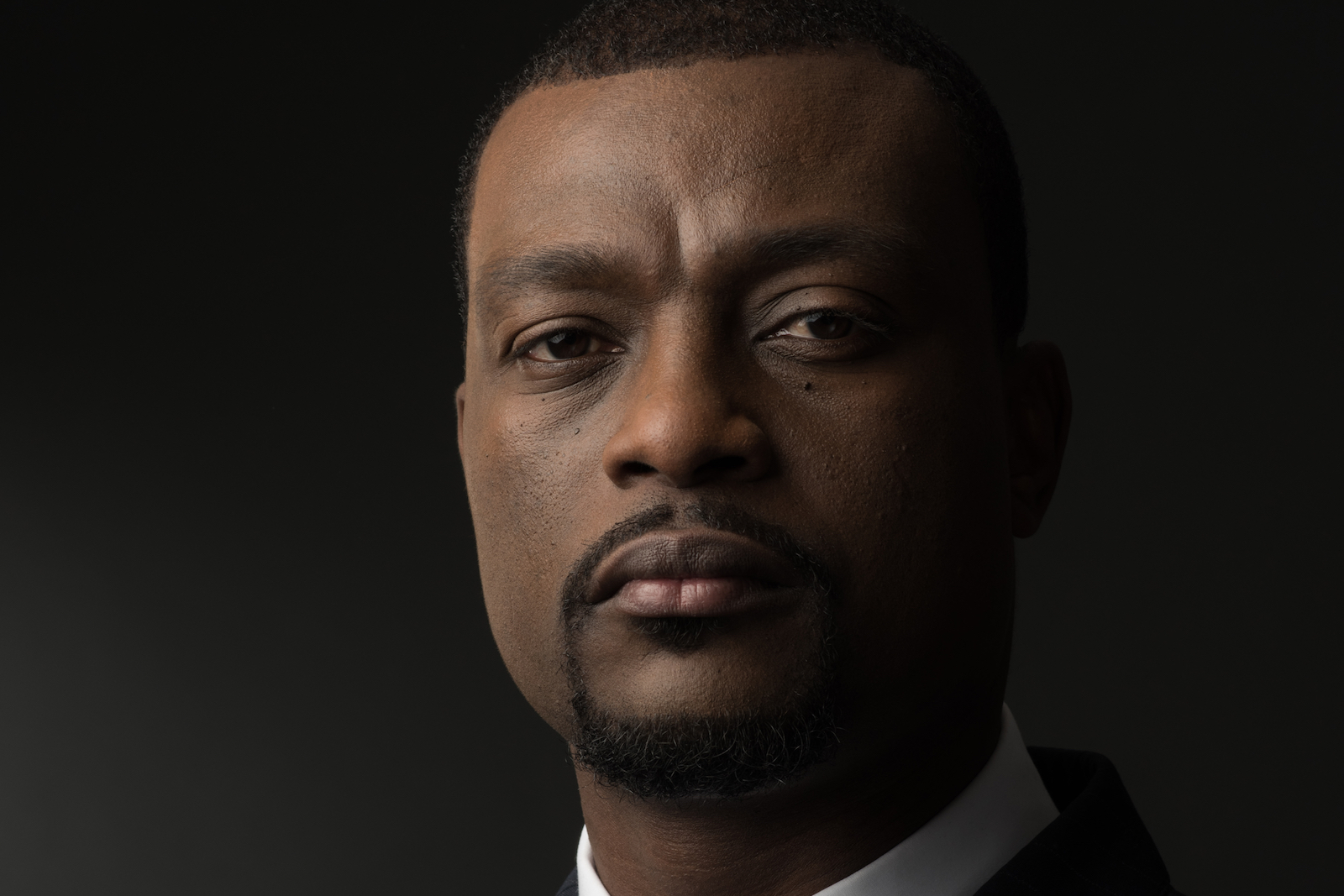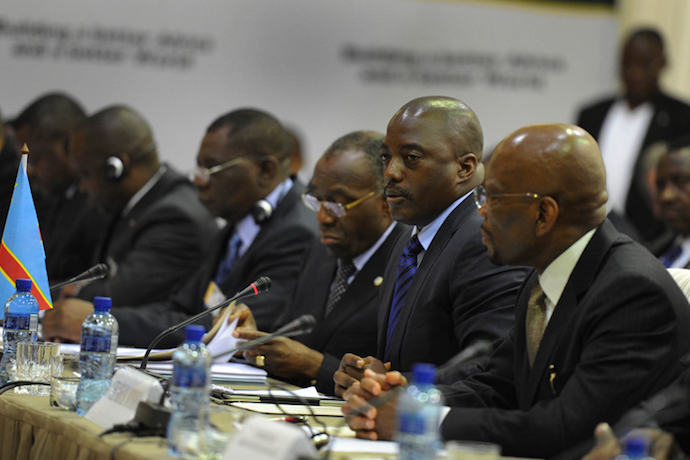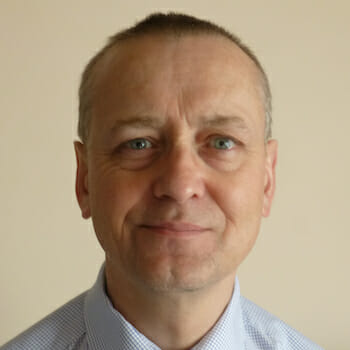
Conversation with Congolese Presidential Candidate Francis Mvemba
You may not have heard of Francis Mvemba and, if so, that won’t be too surprising.
Born in the poorest quarter of Kinshasha, he grew up in the ghettos of Les Tartières in Paris. He shifted boxes to make money and, while he worked hard, was surrounded by poverty and hardship.
“But,” he recalls, “I dared to dream of something better. And I wanted to live my dream, not just talk about it with my friends. I knew it was possible…and I succeeded.”
If there was any doubt, consider this: from the depths of poverty he is a presidential candidate in the upcoming elections in the Democratic Republic of Congo.
This is a crucial poll because it finally marks the end of Joseph Kabila’s rule in the DRC. The country’s constitutional court gave Kabila, who has ruled this vast country since his father’s assassination in 2001, a caretaker mandate to ensure that elections were held after the end of his two-term tenure. Many feared that this caretaker role would eventually turn into a third term but it hasn’t.
Aside from the logistics of holding presidential elections in sub-Saharan Africa’s largest country, the question of who was going to stand was always going to be paramount.
Kabila is backing his former interior minister Emmanuel Ramazani Shadary in the presidential race against a fractured opposition.
Mvemba has a lofty ambition: his aim is to unite the Congolese, reconcile the society and build a brighter future for the people.
And all this at the still relatively tender age of 35.
Earlier this week, he was in Brussels to formally launch his presidential bid with the venue appropriate given that the then “Belgian Congo” was a Belgian colony from 1908 until independence in 1960. Both Brussels and Belgium still have a very large Congolese diaspora.
Representing, he says, the next generation of Congolese leadership, Mvemba is the youngest presidential candidate in the history of the DMC.
His represents a remarkable rise but, referring to those he grew up with, he readily concedes: “My life could have been like theirs.”
Speaking at the launch, he said, “What these years in Congo have taught me is that if the fate of our country is left in the hands of the elder generation, the suffering and decline of the Congolese will continue. The politicians are so deeply embroiled in their own struggle for power and patronage, that they have forgotten the reason why they were elected – to represent their constituents and improve the lives of those who voted them into power. I see this with my own eyes.”
A self-made entrepreneur, Mvemba overcame the challenges of growing up in the roughest neighbourhoods of Kinshasa and Paris to become the head of a successful mining operation in central and Eastern Africa.
The quietly-spoken Congolese is a pioneer of new technology for the exploration of natural resources, most notably in the field of fractal algorithms and the interpretation of data and satellite imagery.
In 2016, moved by the tragedy of the Beni massacre in August 2016, when 64 people were killed, Mvemba provided financial support to the victims and their families and later established the Eufrasia Foundation which offers assistance to sexually abused women.
Mvemba, in an interview, said that he decided to enter politics to help his people and his country restore their “pride in being Congolese.”

After launching the Party for the Emergence of Congo (PEC) in 2016, Mvemba worked with Congolese from all walks of life to craft a political platform based on national and regional security, job creation, a dramatic reconstruction of the healthcare and education systems, and a historic renovation and expansion of the nation’s road and highway infrastructure.
In a country where corruption is seen as having stolen so much of the DRC’s precious natural wealth, meaningful judicial reform is also a key component of Mvemba’s presidential platform.
Mvemba says that, if elected in the 23 December elections, he aims for a female-majority cabinet and the appointment of the nation’s first female Prime Minister.
He insists that he is the candidate to lead the “peaceful transition” of power in DRC, from the current generation to the next.
This “proud Congolese and successful entrepreneur” spelled out his vision for a “new Congo” and hopes for the “lost generation of young people deprived of hope.”
He said, “The most important thing for Congo is for politicians to put aside their divisions and work for the Congolese people. Congo is a rich country – we have everything we need to be successful – but the country has been dragged down for years by bitter political infighting between two camps. We need to stop the labelling people with political brands – it doesn’t serve the Congo people.”
He added, “What is important is that Congolese politicians work to serve the country and the people, not to serve themselves.”
Mvemba outlined his priorities for a future Congo – food security, state health services, and free state education until the age of 18.
He asks, “Why do we import our basic foodstuffs when we could be a global agricultural powerhouse?”
“We need to industrialise our agriculture, our aquaculture industries in our River Congo, and our Lake Tanganyika,” said Mvemba.
“Why do we export so much of our mineral resources to trading partners abroad? We need to create enterprises and companies in Congo to process these raw materials, and create employment at home,” he added.
Concerns about the use of e-voting machines for the first time and a rigged vote were dismissed. Mvemba said there was no choice now but to use the e-voting system, because his priority is to have elections.
Elections in Congo have been delayed for the past two years over constitutional issues surrounding the presidency of incumbent Joseph Kabila. While he hopes for free and fair elections, holding elections represents for Mvemba a step forward in the right direction, and an end to the stasis that has paralysed the country for years.
Mvemba is standing as an independent, without the backing of an established political party, or a dynastic political family. He said he would not be prepared to serve in anyone else’s government, because “what the Congolese people want is something new.”
Though he stressed that there would be no vengeance or retribution for those who have held the reins of power before him. “Whatever is done, is in the past. There will be no settling of accounts, no rancour. I come in peace and ask for respect. I wish to work with anyone who is prepared to work together in the interests of Congo. Corruption is the scourge of our country, but we need to pay state employees better, so they don’t have to resort to bribes in order to live.”
Mvemba believes that young people in Congo have been “sacrificed” and stressed the value that the diaspora (in Belgium and elsewhere) could bring to a developing Congo.
Mvemba’s plan would see financial help and micro-credit loans directed towards returning emigrants, to encourage them to start businesses in if they return.
With the notable exception of a certain election in the United States, recent elections around the world have seen a surge in candidates from a younger generation and the youthful Mvemba is appealing to the young population of Congo at home and abroad to vote “for something new.”
Over 46 million people are registered to vote in next month’s keenly-awaited election although nearly seven million of these have been disbarred over issues with their credentials.
Mvemba’s pre-election message? “Congo needs a new generation of politicians. Congo must go forward. Don’t choose what you’ve already had.”

